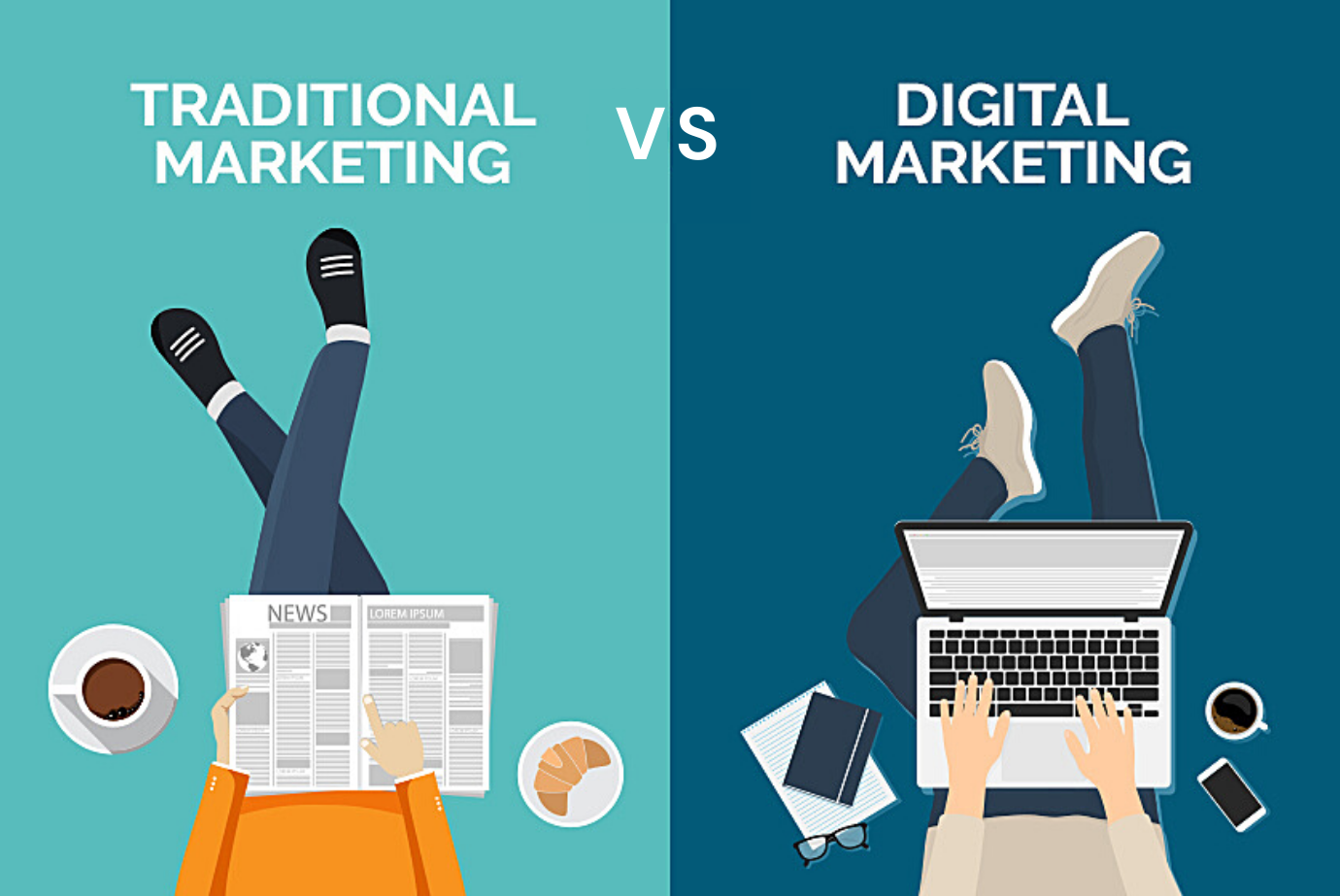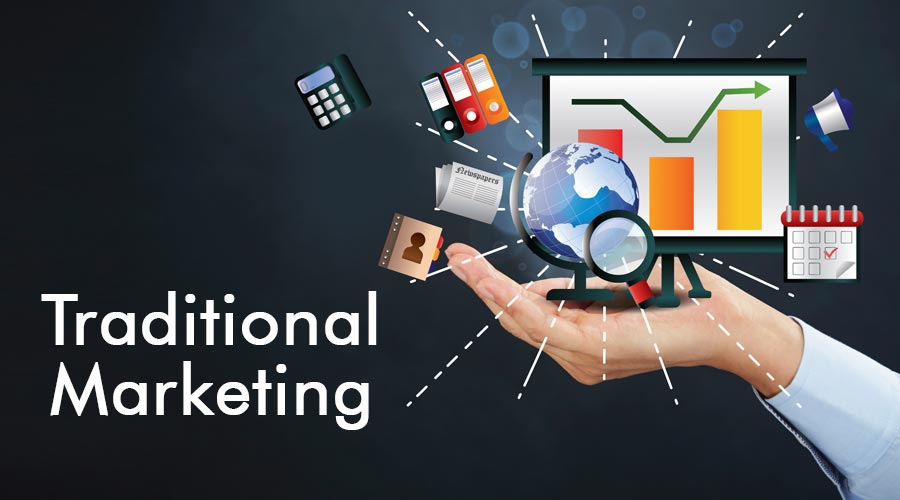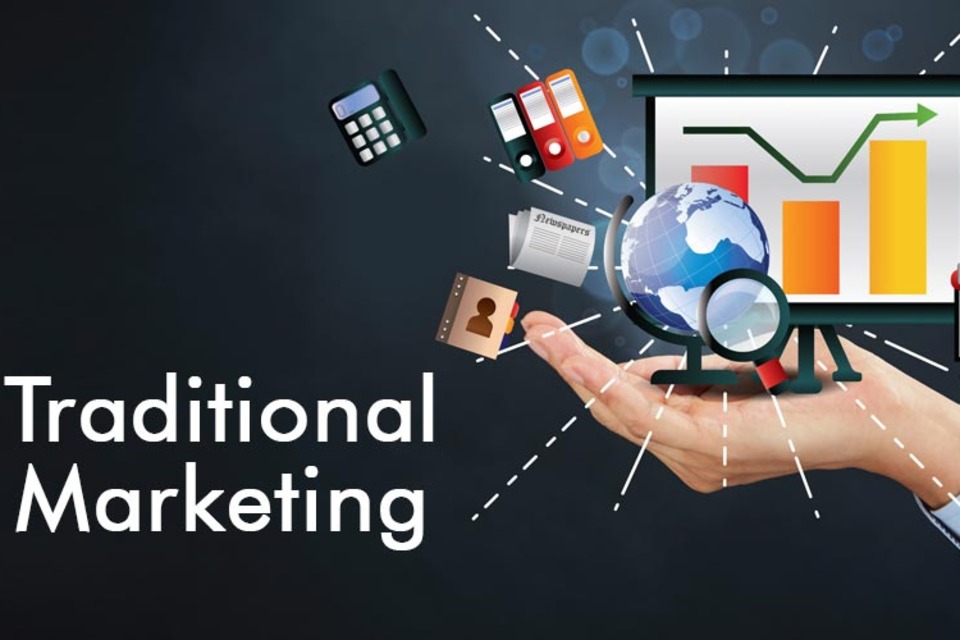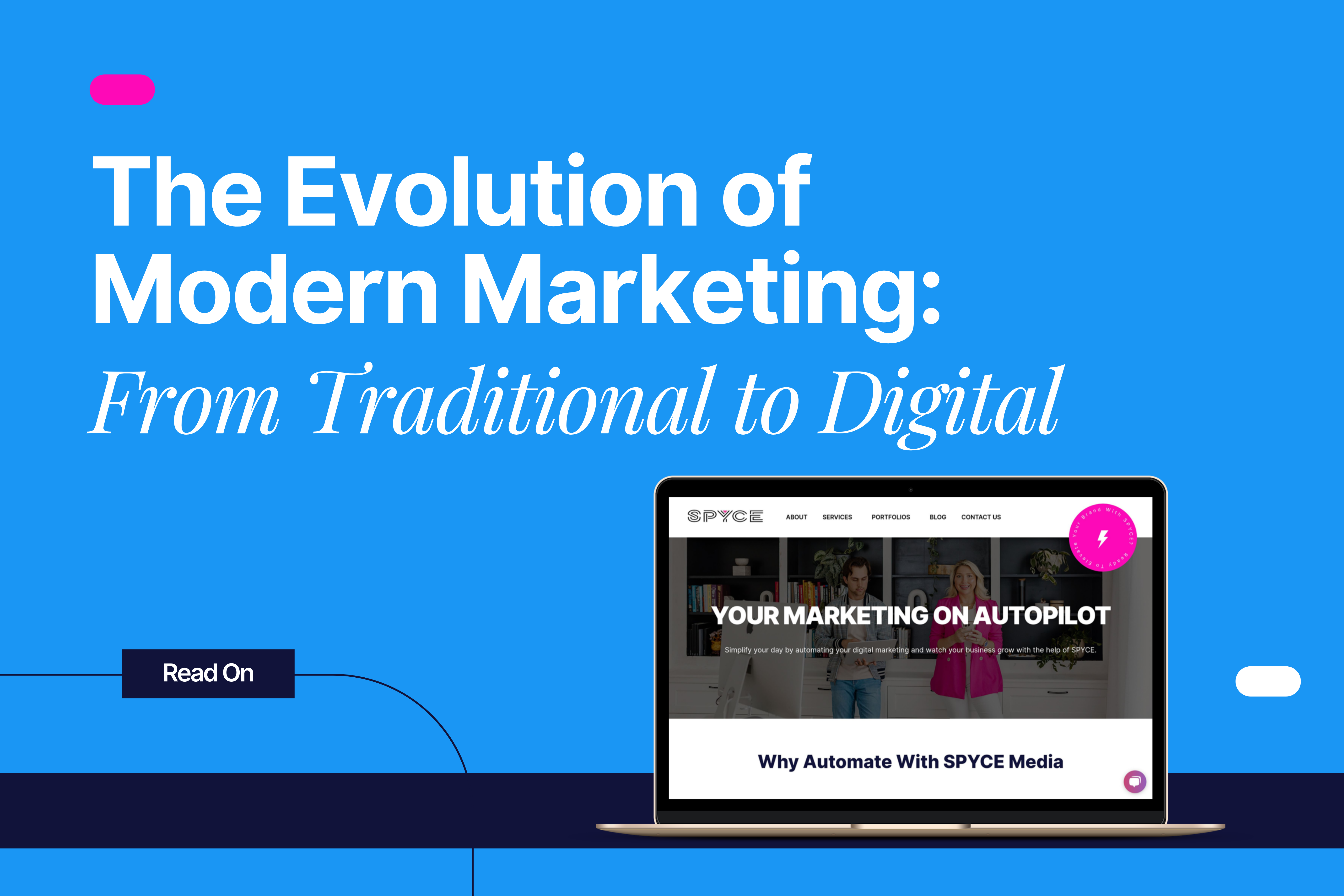In today’s competitive business landscape, understanding the differences between traditional marketing and digital marketing is crucial for crafting an effective marketing strategy. Both methods have their unique advantages and challenges, and choosing the right approach depends on your business goals, target audience, and budget.
Traditional Marketing: The Tried-and-True Approach
Traditional marketing refers to conventional methods such as print ads, television commercials, radio spots, billboards, and direct mail. These techniques have been around for decades and are often trusted for their broad reach and tangible presence.
Advantages of Traditional Marketing:
Wide Reach: Traditional marketing methods, like TV and radio, can reach a vast audience, making them ideal for businesses targeting a broad demographic.
Tangible Impact: Physical materials like brochures, flyers, and billboards provide a lasting presence that digital ads can’t replicate. These materials can be passed from person to person, increasing brand visibility.
Brand Authority: Established brands often use traditional marketing to reinforce their presence in the market, lending an air of credibility and trustworthiness.
Challenges of Traditional Marketing:
Cost: Traditional marketing campaigns can be expensive, with high costs associated with production, printing, and ad placements.
Limited Targeting: It’s difficult to target specific demographics with traditional methods, often leading to wasted resources on uninterested audiences.
Measurability: Tracking the effectiveness of traditional marketing campaigns can be challenging, making it hard to measure ROI accurately.
Digital Marketing: The Modern-Day Powerhouse
Digital marketing encompasses online strategies such as social media marketing, search engine optimization (SEO), email campaigns, and pay-per-click (PPC) advertising. As the world becomes increasingly connected, digital marketing has grown in importance, offering a more targeted and data-driven approach.
Advantages of Digital Marketing:
Targeted Reach: Digital marketing allows businesses to target specific audiences based on demographics, interests, and behaviors, ensuring that marketing efforts are more effective.
Cost-Effective: Compared to traditional methods, digital marketing is often more affordable, allowing businesses of all sizes to compete in the marketplace.
Measurability: Digital marketing offers real-time data and analytics, making it easier to track the success of campaigns and adjust strategies as needed.
Flexibility: With digital marketing, businesses can quickly adapt to market changes, test different approaches, and optimize campaigns for better performance.
Challenges of Digital Marketing:
Online Competition: The digital space is highly competitive, with businesses constantly vying for attention. Standing out requires creativity, consistency, and a deep understanding of SEO and online trends.
Technology Dependency: Digital marketing relies heavily on technology, meaning businesses need to stay updated on the latest tools and platforms to remain competitive.
Short Attention Spans: Online users have shorter attention spans, making it harder to capture and retain their interest through digital ads.
Choosing the Right Strategy for Your Business
When comparing traditional marketing and digital marketing, it’s essential to consider your business objectives. If you’re looking to build brand awareness on a large scale and have the budget for it, traditional marketing might be the right choice. However, if you want to reach a specific audience with precision and measure your campaign’s effectiveness, digital marketing offers unparalleled advantages.
For most businesses, a combination of both traditional and digital marketing strategies often yields the best results. By leveraging the strengths of each approach, you can create a comprehensive marketing plan that maximizes your reach and impact.
Conclusion
Understanding how traditional marketing compares to digital marketing is key to developing an effective marketing strategy. While traditional methods offer wide reach and brand authority, digital marketing provides targeted, cost-effective, and measurable results. By balancing both approaches, businesses can achieve their marketing goals and stay competitive in a rapidly evolving marketplace.








